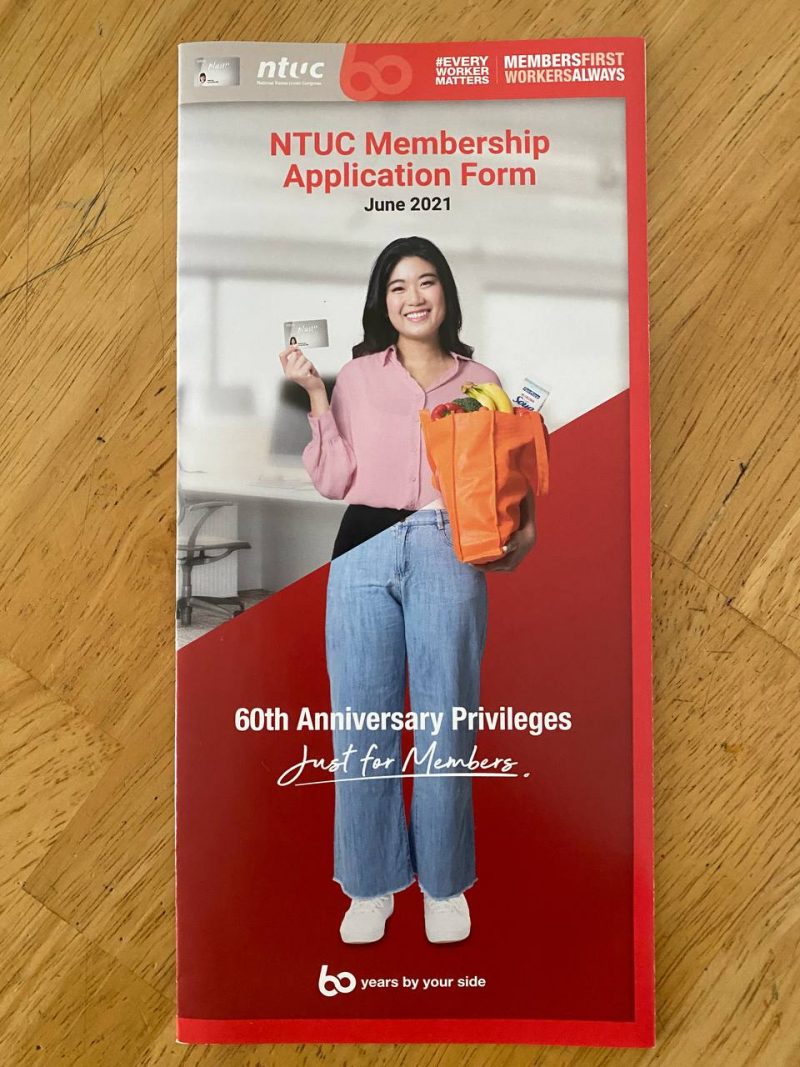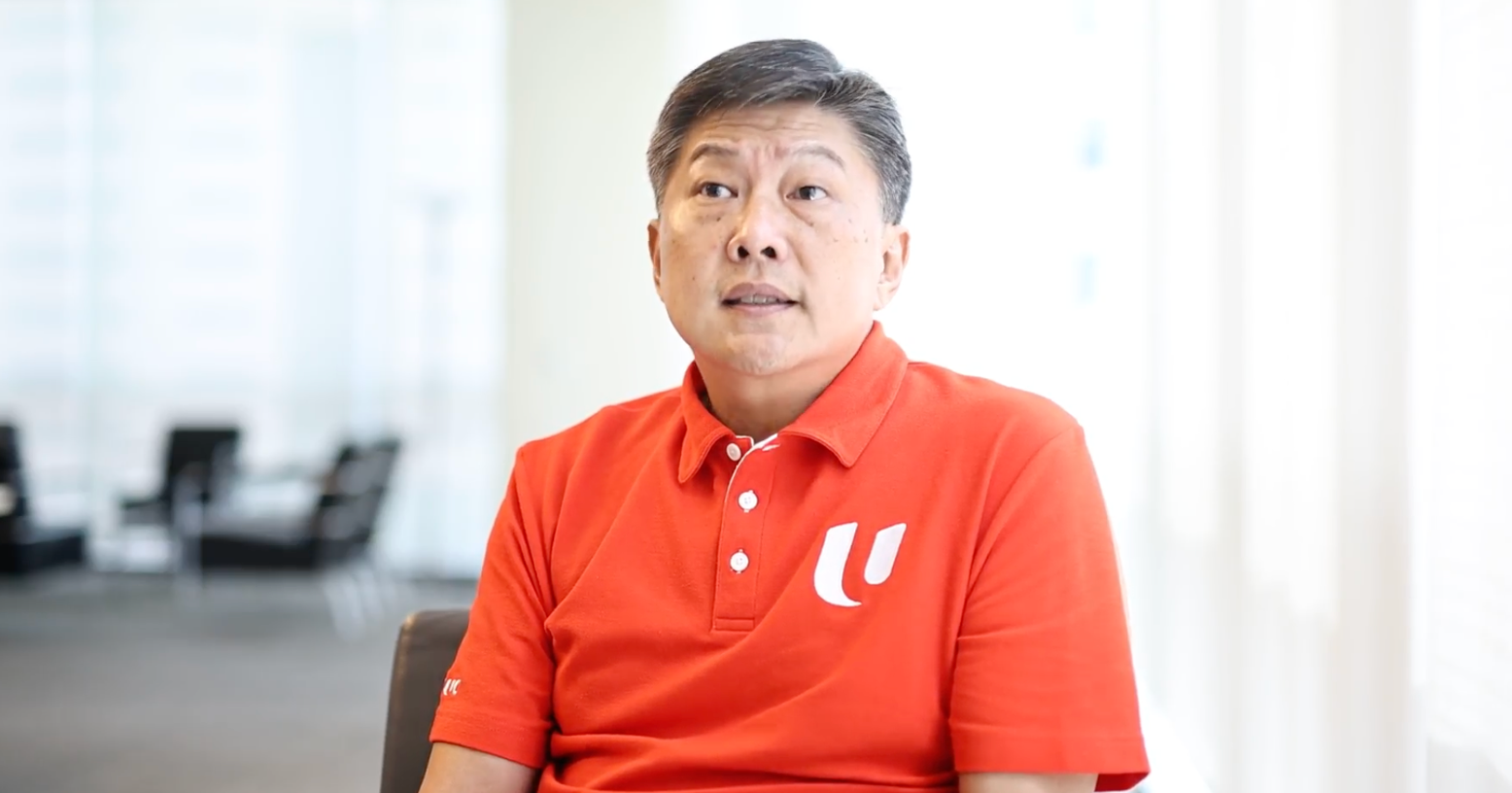Follow us on Telegram for the latest updates: https://t.me/mothershipsg
National Trades Union Congress (NTUC) Secretary-General Ng Chee Meng is worried about a certain kind of Singaporean.
He's not overly worried at all about someone like me, an ageing millennial who can remember a time before the Internet, but must appear as a mayfly to the 53-year-old. The world is in my hands, he tells me. I hope someone remembers to tell the world.
No, as Ng elaborates, he is laser-focused on the older worker who can be included in the professionals, managers and executives (PMEs) category, someone who may be facing issues like discrimination at work, or unfair treatment. But if they're not in a union, they have no one to turn to.
"Unfortunately, for those PMEs, when they reach that age, they do not have a relationship with the unions, nor with NTUC. So they would miss out (on) somebody alongside to deal with real or perceived unfairness in the workplace, or discrimination in the workplace," he says.
This is not the first time that Ng has spoken up about the plight of PMEs, especially the older ones.
He's been banging that drum fairly relentlessly. But as more time passes, and the current batch of PME workers get older, Singapore's economy may just depend on how much headway Ng and his team at the NTUC make.
Still the labour chief
We're chatting in a very nice building which houses the NTUC Centre at Marina Boulevard. Marina Bay is a stone's throw away, and with it, the architectural reminders of Singapore's wealth. But it's workers we're here to discuss on Sep. 8, labour, not capital.
Ng wears red, the now-familiar NTUC shirt that is not a uniform, yet somehow still is one. He's trim and fit, impressive for someone born when Singapore itself was about three years old. Whatever the Air Force fitness regimen is, I should look into it.
Ng is at once a very familiar Singaporean public figure, and yet, someone fairly unique as well.
His resume reads like a recruiter's dream. Earned a Masters degree at Tufts University, became Chief of the Air Force, and went a step further, serving as Chief of Defence Force with the rank of Lieutenant-General. Such men gravitate towards politics, and so it was with Ng.
Entering Parliament in 2015, Ng held appointments in the Ministries of Education, Transport and the Prime Minister's Office. The latter was the post he held going into the 2020 general election. Better men have written better treatises on how Ng's Sengkang team fell to the Workers' Party, causing the PAP to lose a GRC for only the second time in history. But that's not the story we're here for today.
Losing one hat, but still retaining the other, Ng remains labour chief. Although no longer a Member of Parliament, Ng remains an important member of the PAP. Perhaps that gives Ng the clout he needs to muscle and lobby his proposals into policy. Regardless of his political status, Ng continues to work on labour issues and the rights of workers.
We need more workers to join up
But it would help if the workers sign up.
"We need more to be with us," he says, looking straight at me. "Because it is only through the collective strength that NTUC can do more in terms of anti-discrimination."
Ng checks off the benefits a PME worker stands to gain, as if he had a clipboard in his hands. An insurance plan which pays out up to S$40,000 (terms and conditions apply). The FairPrice group gives members a four per cent rebate on NTUC FairPrice purchases, which could outweigh the annual fee of just S$117 (S$9 a month and S$18 for December).
And as mentioned, NTUC can offer "practical protection" in disputes. Ng goes deeper.
Even a worker not in a union can benefit from the Tripartite Alliance for Dispute Management (TADM). But if you're a member, then you have far more options. The union will represent you in negotiations with the management, and hopefully settle on a win-win, fair outcome through mediation. If that isn't possible, NTUC can still help.
Under TADM rules, no lawyers are allowed to represent a worker in a specific case. But union leaders can be there with you, in what is most likely a tense and unfamiliar environment, to give you advice on the different legalities and options.
Keep learning
Ideally though, a worker shouldn't need to reach that ugly stage in the first place. Another area of focus is worker training and skills-upgrading, or as Ng calls it, the "learning ecosystem."
"Ask yourself the question," he asks me. "How many of us actually know what may be available, when we're 25, 35, 45, what may be the courses that you might want to take to keep yourself relevant?"
As someone who does not possess a TikTok account and already feeling mildly irrelevant, I confess that I don't know.
Ng tells me more about the Learning Hub, where not only courses are curated to an individual worker's needs, they also get financial support for training above and beyond the government's SkillsFuture credit. Union members can have an additional S$250 a year for courses, every year, not just a one-off payment.
But what about older workers, reading about buzzwords like Big Data and Artificial Intelligence, and feeling even more out of depth?
NTUC is setting up company training committees for unionised companies, partnering with their HR departments to curate training programmes for their employees. Focusing on adaptability, technology and technical skills, these committees can build a programme for each individual worker, and even fashion a career development plan out of it. After all, who better than the all-seeing oracles of HR to know what skills you'll need to grow?
"We want to make it institutional through the company training committees to support the PMEs. In the vastness of the learning space, what is relevant to you?" Ng explains. He paints a picture of an engineer who wants to learn marketing skills, to branch out and perhaps become a manager.
The way Ng sees it, NTUC can also be a partner in the worker's learning journey, the same way it can stand beside a worker in a dispute.
Help for those unemployed
But we've been talking about theoretical workers who are already employed. What about those workers who have been laid off, particularly after a devastating global pandemic?
Ng is candid about the limits of what NTUC can do, with the prevailing market conditions. They are successful in matching about 60 per cent of the workers who come to them. He envisions a complementary role for NTUC, where through the National Jobs Council, companies looking to fill a spot approach them so they can be successful in matching job seekers.
Even for an older worker, if he has the right experience, mentoring abilities, and is willing to "adjust his expectations", he may be re-employed, perhaps with a 10 to 20 per cent adjustment in pay. However, he believes that PMEs aged 55 and above may well be interested in moving to such a mentorship role.
Preparation is everything
For Ng, preparation is key.
"Before you get to that situation, why don't we start at 40 years old? Think about what are the new strengths that we'll need by 50? Start preparing yourself," he says.
And then, as workers get older, their career progression may not always follow a straight line. It could taper off, or even go in a completely different direction. Ng discusses finding professional fulfilment, not just in pay, but perhaps in a different job scope or environment. An older worker with management skills, for example, might look into going into healthcare and social work, helping even older folks in a neighbourhood to stay well.
It speaks to the nature of a changing economy and job market, and the iron certainty of demographics, with Singapore greying into a nation more in need of social care in the near future.
"For PMEs in a rapidly changing world...consider how long is the runway, how viable is the runway, and whether we should switch runways sometimes," he says.
Level playing field for local workers
Our conversation took place before the big foreign jobs debate in Parliament, but I recall asking Ng about how NTUC can help local workers, who may be feeling anxious about competing with workers from foreign countries.
Ng believes that NTUC can help a worker best prepare for the challenge on three levels. The first is to maintain our world-class standards as workers, by constantly keeping ourselves at the forefront of our industries.
"The world today, we do not compete just within the shores of Singapore. We compete internationally," he says. The best prepared worker is one with a personal drive to keep their market value as high as possible.
Secondly, PMEs who are part of a labour movement can help to scrutinise the "small numbers of unfair companies", whose actions bring down the remaining 99 per cent of companies who treat their workers fairly. Targeted legislation could be considered, as a last resort, but more important is an "ecosystem" of HR that understands both the law and the socio-political issues to reduce unfair practices.
Prime Minister Lee Hsien Loong recently announced that the Tripartite Alliance for Fair and Progressive Employment Practices (TAFEP) guidelines will be enshrined in law in his National Day Rally speech on August 29.
In his speech, PM Lee shared that the government has received repeated requests over the years to "toughen up TAFEP", especially from the Labour Movement and NTUC Members of Parliament who have pushed for anti-discrimination laws with penalties.
Thirdly, NTUC will do its part to maintain Singapore's reputation as a place with strong institutions, a superb investment climate and an innovative environment to attract investors and create jobs.
The win-win-win solution
The benefits look clear for a worker, although some may work for employers who are not as keen to see their employees join a union.
To them, Ng says that Singapore's tripartite model helps to avoid the zero-sum competition between workers and their employers found in other countries. "We are unlike the unions in many parts of the world where the worker wins at the expense of the employers."
He cites the assistance rendered by NTUC to companies during the height of the pandemic, setting up training programmes, suggest business model pivots to help them survive, as proof.
"The only way for us to sustain better wages, better welfare and better work prospects from my workers, take it from me, the only way is to ensure that our employers succeed. If employers don't succeed, I cannot make these possibilities for the workers. NTUC in that sense, collaboration with government has worked for 60 years, and this is really our 'secret sauce' for success. Tripartism where everyone has a win-win-win."
And he makes sure I leave with a sign-up membership form in my hands.
 Photo by Sulaiman Daud.
Photo by Sulaiman Daud.
Top image from NTUC.
Follow and listen to our podcast here
If you like what you read, follow us on Facebook, Instagram, Twitter and Telegram to get the latest updates.
